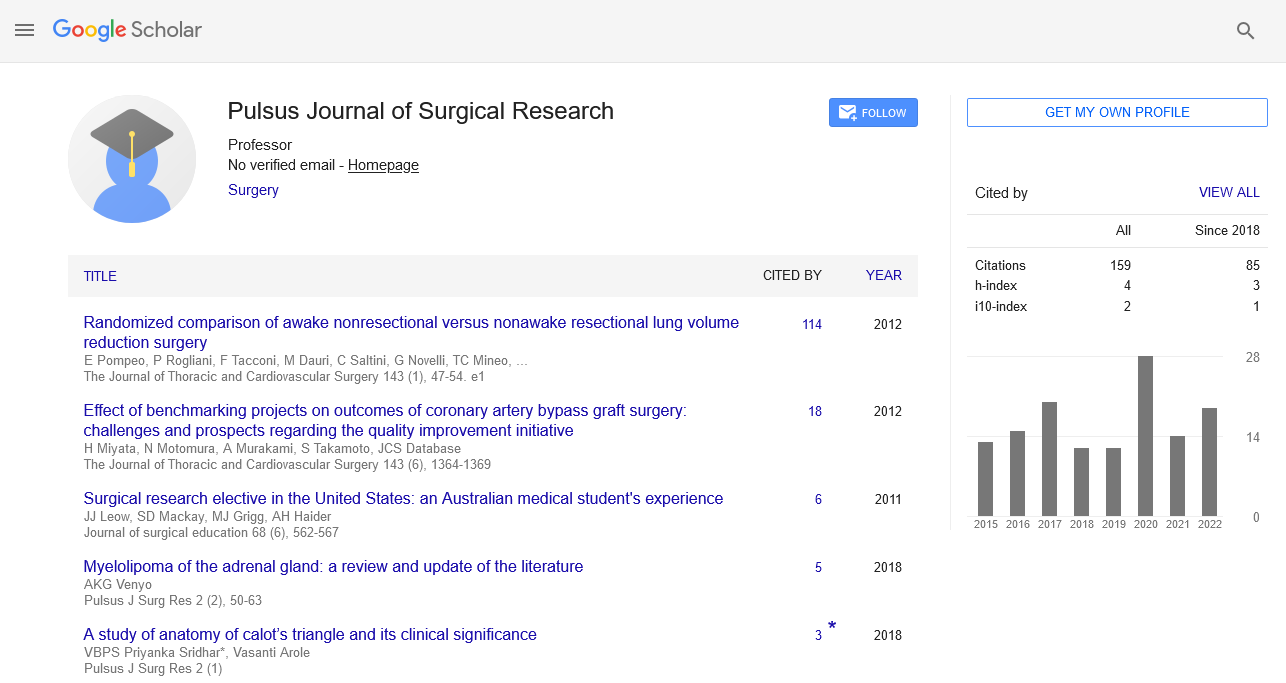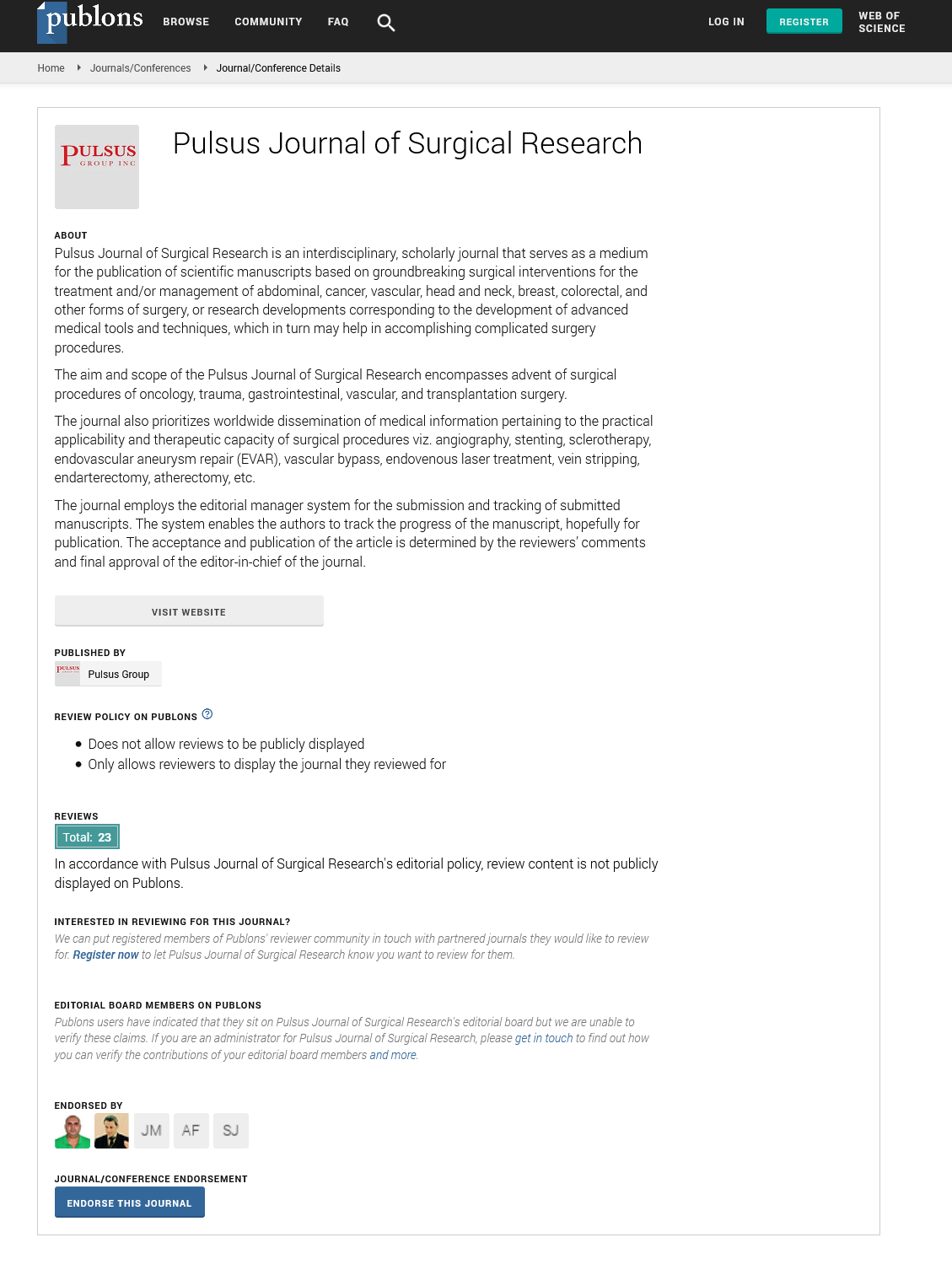
Sign up for email alert when new content gets added: Sign up
Abstract
Effect of benchmarking projects on outcomes of coronary artery bypass graft surgery: Challenges and prospects regarding the quality improvement initiative
Author(s): Hiroaki Miyata
Objective
The Japan Cardiovascular Surgery Database (JCVSD) was established in 2000 and initiated a benchmarking project to improve the quality of cardiovascular surgery. Although the importance of quality improvement initiatives has been emphasized, few studies have reported the effects on outcomes.
Methods
To examine the time-trend effects in initial JCVSD participants (n = 44), we identified 8224 isolated coronary artery bypass graft (CABG) procedures performed between 2004 and 2007. The impact of surgery year was examined using a multiple logistic regression model that set previously identified clinical risk factors and surgery year as fixed effects. To examine the difference in outcomes between initial participants (n = 44) and halfway participants (n = 55), we identified 3882 isolated CABG procedures performed in 2007. The differences between the 2 hospital groups were examined using a multiple logistic regression model that set clinical risk factors, hospital procedure volume, and hospital groups as fixed effects.
Results
For operative mortality, the odds ratio of surgery year was 0.88 (P = .083). Observed/expected (OE) ratios for operative mortality were 0.71 in 2004, 0.73 in 2005, 0.63 in 2006, and 0.54 in 2007. As for composite mortality and major morbidities (reoperation, stroke, dialysis, infection, and prolonged ventilation), odds ratio of surgery year was 0.97 (P = .361). OE ratios for composite mortality and morbidities were 1.01 in 2004, 1.04 in 2005, 1.04 in 2006, and 0.94 in 2007. Compared with halfway participants, initial participants had a significantly lower rate of operative mortality (odds ratio = 0.527; P = .008) and composite mortality and major morbidities (odds ratio 0.820; P = .047).
Conclusions
This study demonstrated that a quality improvement initiative for cardiovascular surgery has positive impacts on risk-adjusted outcomes. Although the primary target of benchmarking was 30-day mortality in Japan, major morbidities were less affected by those activities





